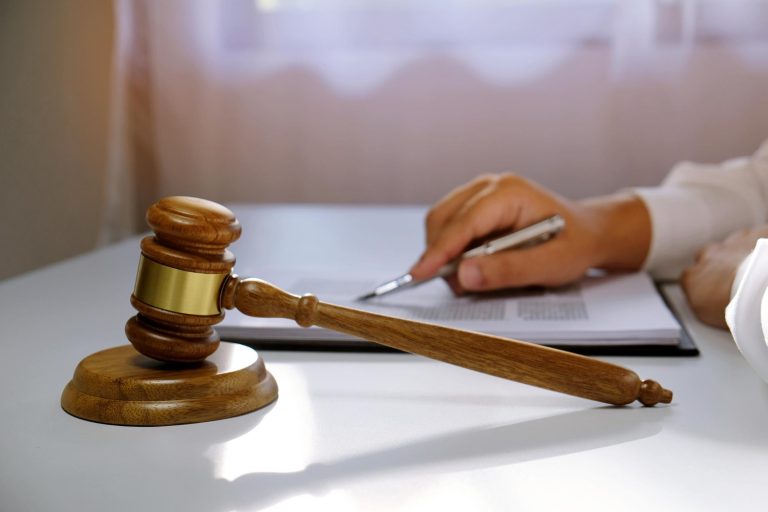When a parent is incarcerated, it can create immense emotional and practical challenges for the entire family, particularly for the children involved. Grandparents often find themselves stepping into parental roles, navigating complex legal landscapes to secure their rights and maintain family bonds. At MenduniMartindill, we deeply understand these struggles and are here to guide you through every step. We have years of experience as divorce lawyers, and we’re dedicated to protecting grandparents’ rights when a parent is in jail.
As demonstrated by the Child Welfare Information Gateway, grandparents can seek custody or visitation rights in many cases when a parent is in jail. State laws vary, so grandparents should check their specific state’s guidelines. Legal advice is often necessary to understand their rights fully.
Understanding Grandparents’ Rights
Grandparents’ rights are legal provisions that can grant grandparents visitation, custody, or care of their grandchildren.
Grandparents’ rights to see their grandchildren depend on state laws and various situations, like how close they are to the grandkids, what the parents want, and what’s best for the child. Sometimes, if the parents are divorced or have passed away, grandparents might get visitation rights if it’s good for the child. However, these rights are not automatic and need to be fought for in court.
Grandparents have to show they have a strong bond with their grandchild and that not letting them visit would hurt the child. It’s very important for grandparents to know their state’s laws about their rights and to get legal help if they think their rights are being ignored.
Legal Steps for Grandparents
Grandparents can pursue legal rights or custody of their grandchildren through specific legal pathways.
If grandparents aren’t allowed to see their grandchildren, they can ask the court for visitation rights. If they want custody, they can apply to be the child’s guardian or adopt them. They can also talk to a lawyer to look into other ways, like going through the child welfare system or showing that the parents can’t take care of the children.
Grandparents need to have proof that they can provide a safe and stable home or that the parents are not fit to care for the kids. They should be ready for a long and tough legal process, which can be emotionally hard and costly. Consulting a family law attorney is important to learn about their rights and what steps to take to get custody or visitation rights.
Visitation Rights Explained
Visitation rights allow a non-custodial parent legally guaranteed time to bond with their child.
These rights are often granted by a court during divorce or separation to make sure the child keeps in touch with both parents. Visitation schedules can change based on the case, but they are usually designed to be best for the child. Things like the child’s age, the parents’ work schedules, and the child’s school and activities might be considered when setting up these visits. It is important for both parents to follow the visitation plan to keep a stable and steady relationship with their child.
Breaking the terms of the visitation plan can lead to legal problems, so both parents need to communicate well and work together to meet the child’s needs. If a parent has concerns about the visitation plan, they can ask to change it through a legal process.
Custody Issues for Grandparents
Custody issues for grandparents often stem from situations where they must step in to care for their grandchildren, such as parental neglect or substance abuse.
It can be hard for grandparents to get custody of their grandchildren because of legal issues. Sometimes, they have to prove that the parents can’t take care of the kids properly. This situation can cause a lot of stress for everyone involved and can harm family relationships. Grandparents should get legal help to understand custody laws.
It’s important to talk openly with everyone to find the best solution for the children. Grandparents might need to show that they can provide a safe and stable home.
Court Process and Requirements
Court processes and requirements can be vastly different, often influenced by unique national legal traditions and the specific nature of the case.
To take a dispute to court, you usually need to do several things: file a complaint or petition with the court, notify the other party, attend meetings or hearings before the trial, collect evidence, interview witnesses, and maybe even go to trial.
To move forward with a court case, you have to meet some requirements. These include paying filing fees, meeting deadlines for submitting documents, and sharing evidence with the other side. By and large, both sides also have to follow the court’s rules about how evidence is presented and how the process works.
Having a lawyer is important because they understand these rules and can help make sure you do everything correctly. Lawyers are trained to handle the various problems that may occur of the legal system and can represent you well in court.
While the court process can be complicated and demanding, following the steps and meeting the requirements will help you work through the system and seek justice through the courts.

The Takeaway
When a parent is incarcerated, grandparents can play a very important role in providing stability and care for the child.
What MenduniMartindill is seeing the good in is, while the legal system varies by state, grandparents may have rights to seek custody or visitation in the best interest of the child.
It is important for grandparents to seek legal counsel and advocate for the well-being of their grandchildren in such circumstances.


